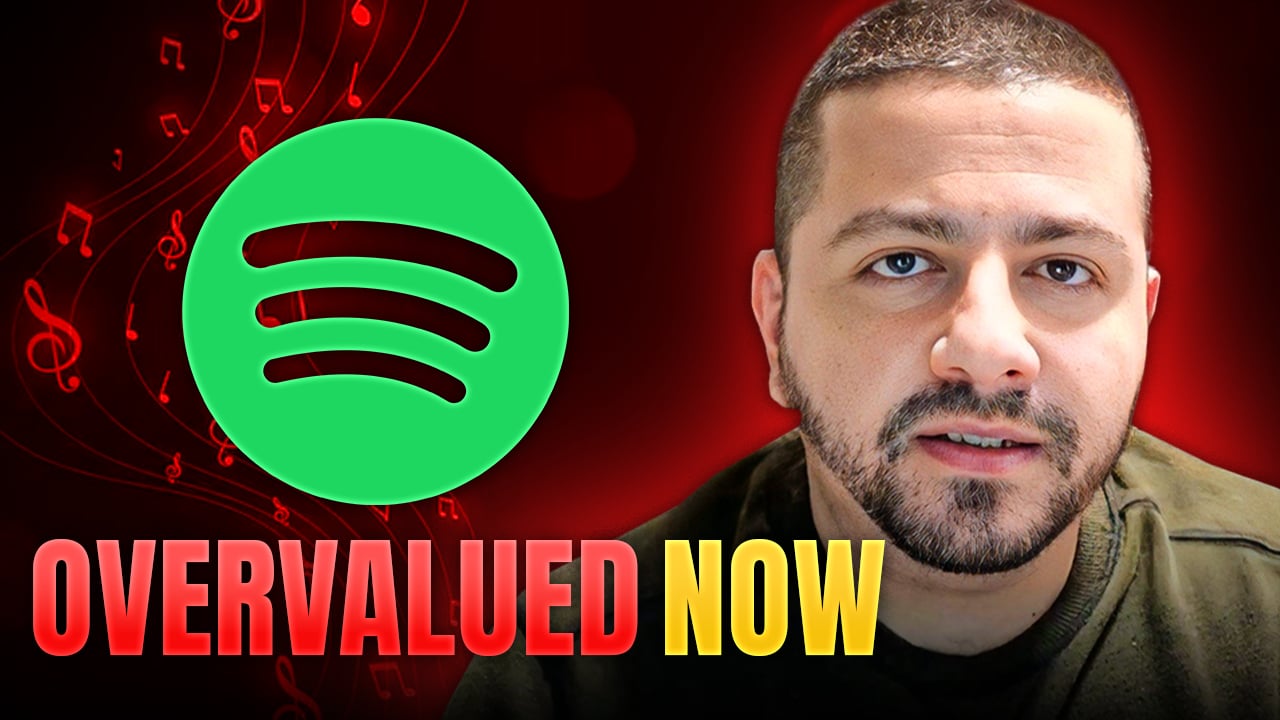After trading in a flattish range for the first few years after its 2018 IPO, shares of Spotify (SPOT 0.70%) have spiked over 80% year to date. Some investors are probably looking at Spotify's business today and seeing similarities to Netflix (NFLX 0.04%) around 2012. That was the year Netflix began to step up its game and transition to original content. The hit show House of Cards debuted on Feb. 1, 2013. If you had invested $1,000 in Netflix stock on that day, you would currently have a position worth nearly $20,000.
Spotify is the leader in audio streaming with 286 million monthly active users. Just as Netflix essentially created the market for on-demand video streaming, Spotify has a big growth opportunity by expanding its original content, primarily with podcasts. While I don't believe Spotify will be able to recreate Netflix's stellar returns, the audio streamer's future in podcasts looks very promising based on market research from Nielsen.

Image source: Spotify.
Spotify is valued much higher than Netflix in 2012
A big part of Netflix's returns to investors over the last decade was in large part due to its severe undervaluation. Around 2010, not many envisioned the explosive growth Netflix would experience, mainly because the wave of demand for original video content hadn't arrived yet. Before 2013, Netflix revolved around its DVD-by-mail rental business, and streaming video content from third-party studios and distributors.
At the end of 2009, Netflix had a market value of just $2.9 billion and a price-to-earnings (P/E) ratio of 28. Its market value is now around $200 billion. Even as Netflix began to invest in originals ahead of the launch of House of Cards in 2013, its market value was still just $5.1 billion at the end of 2012. Some investors believed that original content would not be a viable strategy, because people might subscribe to watch new episodes and then cancel.
Now, after a glorious first decade of streaming, investors are much wiser to the potential rewards of investing in original content. That's one reason why Spotify already has a market value of $50 billion, even though it hasn't earned much yet in profits.
Investors are optimistic about Spotify's opportunity to grow paid subscriptions by offering original content, and there's good reason for that optimism. The company reported growth in paid subscribers of 31% and total revenue growth of 22% year over year in the first quarter. Its platform will continue to expand, and that should lead to a higher stock price over time, but it's starting the new decade at an already high valuation. Because of that, investors should lower their expectations -- another 20-bagger is unlikely.
Spotify is following the original content playbook
Spotify's podcast strategy should still reward shareholders though. The stock's 80% surge in 2020 so far is a big vote of confidence in this strategy. The growth at Netflix in the last decade has made it clear that quality content is still king in the world of entertainment, so investors are anticipating a strong decade ahead for the leading audio streamer too.
That should come as no surprise as the company is quickly assembling an impressive roster of original content, which management believes will attract more users, fuel increased user engagement, generate faster revenue growth, and grow profits through higher margins. That sounds very similar to what happened at Netflix.
And Spotify really has no choice. There's not much it can do to distinguish itself from rivals like Apple Music, which has virtually the same song catalog with 60 million tracks, while Spotify has 50 million. You'll find some exclusives here and there, but it's not enough for any audio streaming service to build a lasting competitive advantage.
Original podcast content is where the action is in audio. Spotify just signed an exclusive deal with Warner Bros. to produce an original slate of scripted stories from the DC superhero universe. Other deals include the acquisition of The Ringer, a leading creator of sports and entertainment content.
Spotify got the ball rolling last year by spending about $435 million on three crucial acquisitions: Gimlet Media, Cutler Media (Parcast), and Anchor FM. Anchor is the source of more than 70% of new podcasts on Spotify. In some countries around the world, Spotify has already emerged as the No. 1 podcast service with more than one million podcasts on its platform. That's three times more podcast content than Spotify had just a year ago.

Image source: Spotify.
The booming market for podcasts
Even though podcasting has been around for a while, Spotify is bringing loads of originals to its 286 million users. That is opening the door for millions of people to discover the medium for the first time, fueling demand for new content. How big it will get is anyone's guess.
Nielsen estimates the total podcast audience is growing about 20% per year. It's expected to double by 2023. Spotify already has a large and growing built-in audience, and it also has the advantage of being available on many devices.
While Spotify may not match Netflix's run over the past decade, the company is successfully tapping into the double-digit growth of the overall podcast market, and it should remain a rewarding growth stock.








